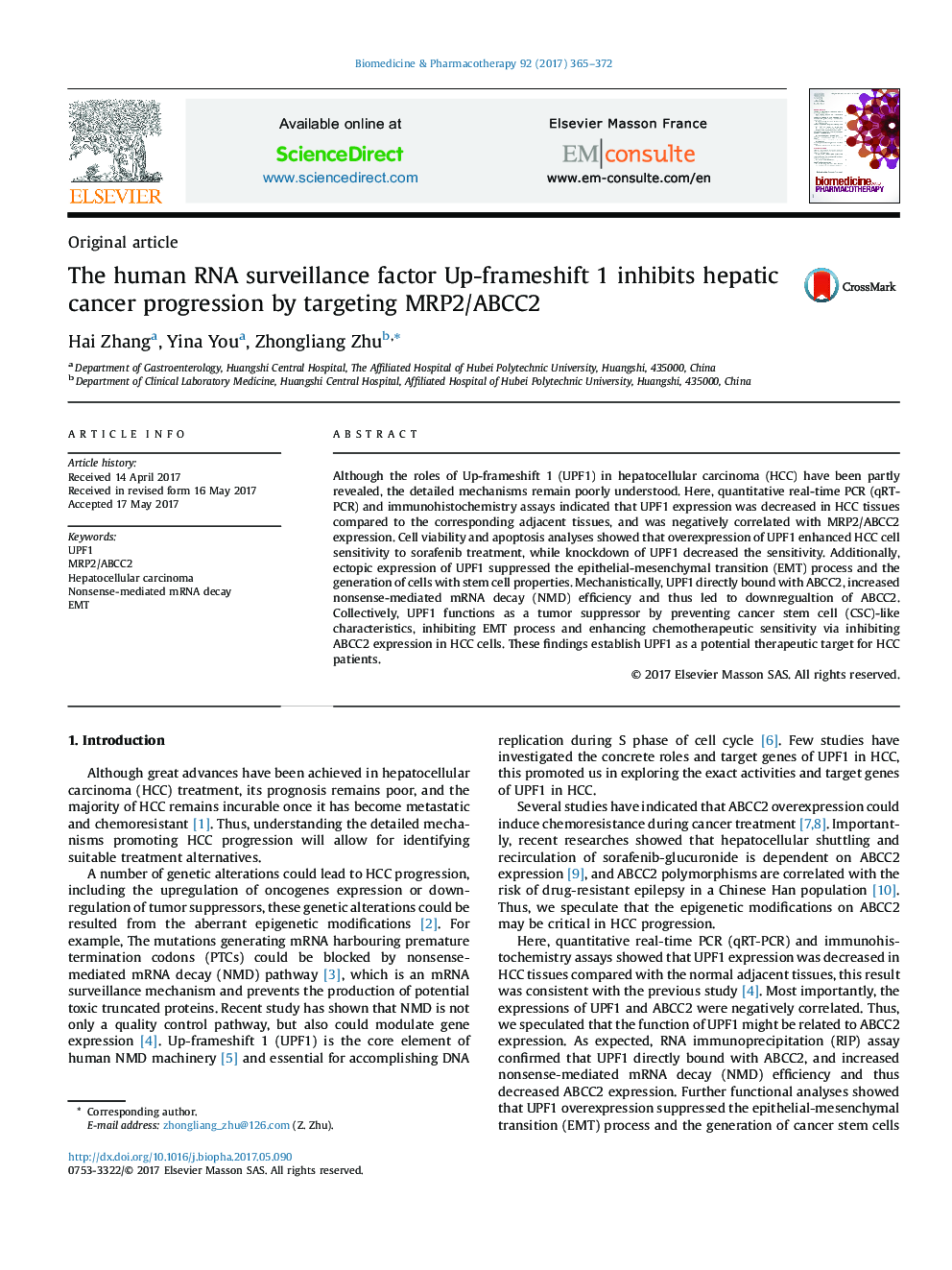| Article ID | Journal | Published Year | Pages | File Type |
|---|---|---|---|---|
| 5552749 | Biomedicine & Pharmacotherapy | 2017 | 8 Pages |
Although the roles of Up-frameshift 1 (UPF1) in hepatocellular carcinoma (HCC) have been partly revealed, the detailed mechanisms remain poorly understood. Here, quantitative real-time PCR (qRT-PCR) and immunohistochemistry assays indicated that UPF1 expression was decreased in HCC tissues compared to the corresponding adjacent tissues, and was negatively correlated with MRP2/ABCC2 expression. Cell viability and apoptosis analyses showed that overexpression of UPF1 enhanced HCC cell sensitivity to sorafenib treatment, while knockdown of UPF1 decreased the sensitivity. Additionally, ectopic expression of UPF1 suppressed the epithelial-mesenchymal transition (EMT) process and the generation of cells with stem cell properties. Mechanistically, UPF1 directly bound with ABCC2, increased nonsense-mediated mRNA decay (NMD) efficiency and thus led to downregualtion of ABCC2. Collectively, UPF1 functions as a tumor suppressor by preventing cancer stem cell (CSC)-like characteristics, inhibiting EMT process and enhancing chemotherapeutic sensitivity via inhibiting ABCC2 expression in HCC cells. These findings establish UPF1 as a potential therapeutic target for HCC patients.
